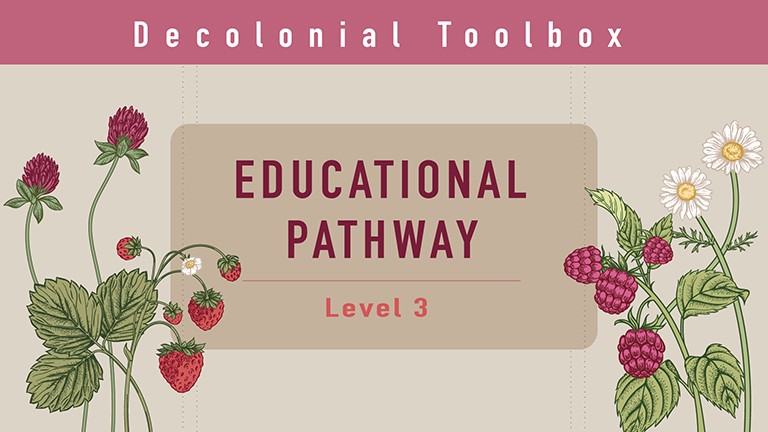Decolonial Toolbox launches new level ahead of National Day for Truth and Reconciliation

The third and final level of the Office of Community Engagement’s comprehensive Decolonial Toolbox Educational Pathway is now available to Concordia faculty, staff and the community at large. It launches on September 30, the National Day for Truth and Reconciliation, which remembers and honours those impacted by residential schools.
The free, self-guided resource is available to anyone interested in a progressive educational pathway toward decolonization. It can be used personally, in classrooms or as part of learning circles.
A collaborative, interactive resource
Combining curated readings, podcasts and videos, the Toolbox is the result of a seven-year collaboration between the Office of Community Engagement; Mikana, an Indigenous-led non-profit focussing on education and social change; and the Montreal Indigenous Community NETWORK.
“The launch of Level Three is the culmination of many years of deep collaboration,” says Geneviève Sioui, coordinator of Indigenous community engagement at Concordia.
“Each of us brought ideas and expertise to the table, and we have all benefited from the process and the results. Over 50 organizations have already worked with the toolbox. We’re very excited to make Level Three available.”
From language to Land Back
The first two levels create a foundation: Level One introduces key concepts and respectful language for speaking about Indigenous realities, while Level Two examines colonial systems such as displacement and assimilation through residential schools and the Sixties Scoop. This level also highlights the multi-generational effects of these systems.
The third level focusses on Indigenous sovereignty and the Land Back movement. Learners explore Indigenous sovereignty and reimagine land not as a possession, but as a living entity with which Indigenous Peoples are socially and sacredly involved.
They are also invited to reflect on the inherent rights of Indigenous Peoples to self-determination, self-governance and stewardship of their traditional territories, cultures and resources.
“The launch of this new level is an invitation to engage on the path of decolonization with self-reflection, courage and perseverance,” explains Widia Larivière, cofounder and executive director of Mikana. “With the Decolonial Toolbox, each step taken becomes an opportunity to deepen understanding of Indigenous realities and to inspire action. Mikana is proud to contribute to this collective movement.”
The value of self-guided learning
Sioui says she sees the Toolbox as part of a growing collection of resources designed to guide learners interested in decolonizing their approaches.
“We created the toolkit as a complement to Dewemaagannag/My Relations, our guide for researchers on how to engage with Indigenous communities. The guide and the Decolonial Toolbox are readily accessible for people to navigate their own paths of decolonization and reconciliation.
“Each tool adds a fresh way to learn, reflect and take meaningful action.”
“The Decolonial Toolbox is an outstanding resource for all Concordians,” adds Manon Tremblay, senior director of Indigenous Directions at Concordia.
“Self-guided resources play a vital role in decolonization education, as they provide learners with the tools they need to manage their own processes and educational journeys.”
By placing the responsibility of learning on the user rather than Indigenous communities, the Toolbox fosters informed reflection and dialogue.
“Organizations can share the toolbox with people who want to learn, as opposed to having to set aside their own missions and mandates to educate,” Sioui says.
Download the full Decolonial Toolbox in English or French from Concordia’s website.
Explore Indigenous Directions, a central hub for Indigenous resources, courses, research and projects at Concordia.




